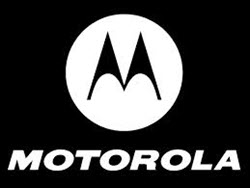Google yesterday announced that it would sell Motorola to the Chinese company Lenovo for $2.91 billion. This would be the largest ever tech deal done by the Chinese electronic giant Lenovo Group.

Larry Page wrote in his post ,
“We’ve just signed an agreement to sell Motorola to Lenovo for $2.91 billion. I’m phenomenally impressed with everything the Motorola team has achieved and confident that with Lenovo as a partner, Motorola will build more and more great products for people everywhere.”
While Google will be retaining the bulk of Motorola’s massive patent portfolio including all its current inventions and applications, Lenovo will acquire about 2,000 patents alongside the Motorola Mobility brand and its trademarks. Lenovo will receive a license for the remaining portfolios of Motorola which will remain at Mountain View.
Selling Motorola Mobility was Google’s smart move as the company never brought anything good for Google and continued losing money. Google acquired Motorola in May 2012 for $12.5bn and then raised the company’s profile with the launch of the Flagship phones Moto X and Moto G duo of smartphones in 2013. As the profit margins for Smartphones are decreasing Google has decided to pull back its short lived venture of making mobile devices and focus on its core competencies like selling ads and making software.
On the other hand the deal seems to be fruitful for Lenovo. Lenovo’s chief financial officer Wai Ming Wong said in an interview, “The deal would feed the company’s “PC-plus” strategy. The Motorola handset business comes in very nicely to expand our business further”. Lenovo is already world’s biggest PC Company and now aims to keep Motorola’s distinct brand identity after this acquisition same as they did when they acquired ThinkPad from IBM in 2005.
The transaction between the Google and Lenovo is subject to regulatory approvals in both the United States and China.
As a person who reads these kinds of articles in trade publications of all kinds, and has been so doing for a long time, I must say that I’m impressed, Shiwangi , with how you wrote this. It’s quite good… better, perhaps, than I suspect you might realize.
The only thing I might have done, had I written it, just to make it more complete — to kinda’ give the reader a bigger picture of what’s going on with Lenovo — might have been to somehow include the information that’s in these three articles…
Lenovo splits into 4 groups after buying IBM’s server business
SEE | http://bit.ly/LuBl3N
Why IBM Is Selling Its Server Business to Lenovo
SEE | http://bit.ly/LuBqEx
Why Lenovo paid $2.3 billion for IBM’s low-end server unit
SEE | http://bit.ly/LuBx2M
SEE, ALSO | http://bit.ly/LuBGn3 (Google web search)
SEE, ALSO | http://bit.ly/LuBOTD (Google News)
…just because it, too, is happening right now; and because, again, it gives the reader that bigger picture. Sort of like a regular newspaper reporter would include in his/her hard news story about John Doe’s being arrested today, that he was, unrelatedly, elected to City Council last week. That sort of thing.
Other than that, though, seriously, nice article. Very professional. Well-written (and I used to work for a newspaper, so I kinda’ sorta’ almost half know what I’m talking about). [grin]
Of course, as to the story, itself, this is HUGE! Personally, when Google bought Motorola, I was hopeful; and I believed that back when the T-Mobile and AT&T deal was falling apart, that Google should have purchased T-Mobile and become one of the biggest players in Android-related telephony, owning the OS, a huge hardware maker, and a US cellular service provider: the perfect killer combo, I thought to myself. People over at Apple’s iPhone group (not that many miles from me) probably would have fainted, right at their desks! It would have even gotten Samsung’s attention! [grin]
Now Google is getting out of the phone hardware business; and by retaining all but phone-related Motorola patents, clearly just wants licensing fees for hardware innovation. Google’s just not a hardware manufacturer (a specialization unto itself, and so it’s understandable why Google would want to get out of it).
A downside is that it pretty much puts to an end (as if Google’s acquisitin hadn’t, already) to the Motorola that I’ve known and loved for my entire life; that had its headquarters near where I used to live in the Chicago area; and to which I sold several huge computer networking products back in the ’80s when I was doing that sort of thing. There is nary a radio in a police car or fire truck, or on a police officer’s or firefighter’s belt, in America, that isn’t made by Motorola. Most aircraft and other two-way radio equipment, to this day, is made by Motorola. Even the old two-way radio sitting on Barney’s desk in the old “Andy Griffith Show” reruns was an old Motorola transceiver device. They’re everywhere; and it’s as rugged and pretty much indestructable as you can imagine! And that particular market is hardly the only one in which Motorola has excelled and in which it has been dominant for over half a century.
[sigh] Nothing stays the same. Everything changes. If you live long enough, virtually everything, and certainly everyone, you love, dies. Take my adivce, then: Don’t get old if you can possibly avoid it. [grin]
Nice article. Excellent work. Keep it up!
__________________________________
Gregg L. DesElms
Napa, California USA
gregg at greggdeselms dot com
Veritas nihil veretur nisi abscondi.
Veritas nimium altercando amittitur.